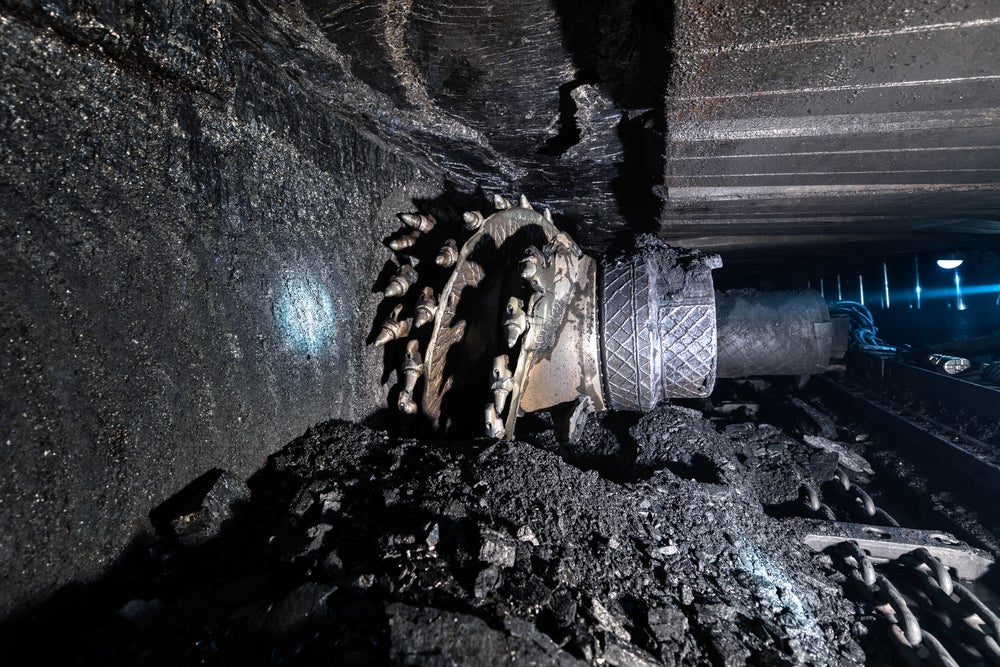India is looking to expand production from its underground coal mining industry to 100 million tonnes by 2028 as the country strives to meet growing power demand.
“India is on a high-orbit growth trajectory, expanding industrially and economically,” Amrit Lal Meena, a senior official at India’s Coal Ministry, said in a statement to the Financial Times. “Coal continues to play a key role in India’s economic growth and development.”
Most of India’s domestic coal production comes from opencast mines at the Earth’s surface. The ministry plans to triple output from its underground coal mines by 2028 in an attempt to revive an industry that has been in decline for decades.
The announcement that further coal mining is required to meet demand comes after the country’s Minister of Coal Pralhad Joshi said in March that India will have enough coal reserves to begin exporting by 2026, a move that will see the nation move from being a net importer to a net exporter of coal. In May, the ministry also announced plans to produce more than one billion tonnes of coal between 2023 and 2024 after it revealed that India’s total coal production has increased by 47% over the last nine years.
India is currently the second-biggest producer of coal in the world after China. Its relationship with the fossil fuel has been complicated this year as the country continues to see-saw between plans to boost coal output and reduce it amid growing calls for global coal phase-out to meet climate goals.
At the COP summit in 2021, India signed an agreement to phase down coal, but the continued increase in its domestic production and output goes against this pledge. The ministry said in its statement that increasing production from underground mines will help offset depletion at opencast mines and reduce dependence on imports, although working in underground mines also carries a greater risk to worker safety.
In January, the Energy Ministry asked power companies to refrain from retiring coal-fired plants until at least 2030 to meet growing demand for electricity, a problem that continued to worsen into the summer as record heat drove up power use. In the announcement, the ministry did not mention a specific time frame for the closure of any of its 179 operational coal plants.
In April the country’s state-owned power company, NTPC, announced plans to expand coal operations to meet demand, sanctioning the construction of 4.5GW worth of coal plants across three locations.
Then, in June, the government announced a five-year pause on the commissioning of new coal-fired power plants in an updated version of its National Electricity Plan, only to then increase its electrical coal output again in September to the highest levels in six years as continued heatwaves and droughts diminished hydroelectricity production.
[Link src="https://www.power-technology.com/all-newsletters?utm_campaign=Verdict%20COP28%20Newsletter%20Subscriptions%20Website&utm_source=GDM%20COP28&utm_medium=Power%20Tech" title="Don’t miss our coverage of COP28! Subscribe here for exclusive insights & analysis." font-size="20px"]








